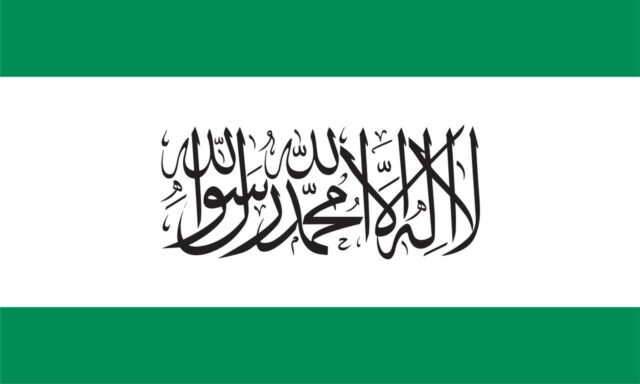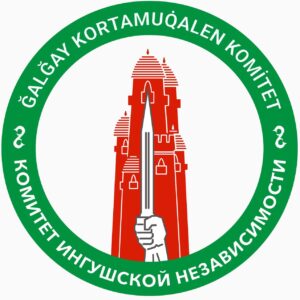Ingush activists announced the formation of the Ingush Liberation Army, threatening the Kremlin’s regional presence and strategy

Geopolitical Report ISSN 2785-2598 Volume 30 Issue 9
Author: Giuliano Bifolchi
The Kremlin might face a new wave of violent attacks or regional destabilisation due to the establishment of the Ingush Liberation Army, a military branch that the Ingush Independence Committee created to support an independent Ingushetia separated from the Russian Federation.
The Ğalğay Komitet (in Russian, Komitet Ingushskoj Nezavisimosti; in English, Ingush Independence Committee – KIN), advocating the de-occupation of Ingushetia, issued a statement announcing the decision to form the Ğalğay Kortamuq̇alen Eskar (in Russian, Ingushskoj Osvoboditel’noj Armii; in English, Ingush Liberation Army – ILA).
The KIN statement, in particular, states: “Under the right of our people to self-determination and self-defence, granted to us by Almighty Allah, decides to form the Ingush Liberation Army (Ğalğay Kortamuq̇alen Eskar)“.
KIN activists justify their decision with the need to prepare for the collapse of Russia. They declared that, due to many years of “Russian occupation and violence” in Ingushetia, Ingush people should be ready for the upcoming collapse of the Russian Federation, “which will inevitably lead to confrontation within the Russian elites, all kinds of private military companies (PMCs) and gangs created by the criminal Kremlin authorities.”.
The KIN declared its goal to restore what its members consider “the territorial integrity of Ingushetia (GIalgIayche) and protect its borders from possible aggressive actions by Russian satellites.”
In conclusion, KIN activists express their hope for the success of the decision: “We ask Allah in this holy month of Ramadan to help us in this difficult task and grant us His blessing. May Allah Almighty show us the truth and lies as lies, strengthen us on this path, and grant us victory over our enemy. Amine!”
The military banner of the Ingush Liberation Army follows the model of the flag of the Republic of Ingushetia. This version, however, replaces the triskelion with the Arabic phrase “لا إله إلا الله محمد رسول الله” (There is no God but Allah, and Muhammad is the messenger of Allah), emphasising the great importance that ILA gives to Islam and the Muslim community.
At the beginning of January 2023, the Komitet Ingushskoj Nezavisimosti (KIN) announced its establishment via its Telegram channel. KIN described itself as a social movement created by independent representatives of the Ingush nationality “who are ready to defend the right of the Ingush people to freedom and independence, granted to us by Allah Almighty”.
The statement underlined that KIN is not a political party. Therefore its activists do not claim a particular position in the Ingush society. Their main goals are to consolidate the Ingush society around the idea of freedom and independence, convey the voice of supporters of the independence of Ingushetia to the whole world, create a solid foundation for building an independent Ingush state, preserve religious and cultural identity, prevent the assimilation and dissolution of the Ingush ethnic group, and prevent another deception of our people and a round of violence against them.
On January 7th, 2023, a few days later the creation of the official Telegram channel, in Istanbul, was held the first congress of the supporters of independence of Ingushetia announced the establishment of the Komitet Ingushskoj Nezavisimosti. During the event, the participants read and discussed reports on the political and socio-economic situation of the North Caucasian republic.
On April 25th, 2023, the journalist and public figure Magomed Toriev attended and spoke on behalf of the KIN at the Free Nations of Post-Russia forum, organised in Washington D.C., in the building of a research centre Hudson Institute.

Ingushetia: a geopolitical and security scenario
Ingushetia is a republic located in the North Caucasus Federal District of the Russian Federation. Historically, Ingushetia has had a complicated geopolitical position due to its location at the crossroads of major trade routes and its role in the North Caucasus insurgency.
The country has borders with Chechnya, North Ossetia, and Georgia. Since the collapse of the Soviet Union, these borders have been a source of conflict for Ingushetia. The complex ethnic and political dynamics of the region have led to disputes over land, water, and other resources. The borders have also made it difficult for Ingushetia to establish stable economic and political relationships with neighbouring countries.
Ingushetia is economically dependent on Russia and has limited its bargaining power in negotiations with the Russian government. In recent years, Ingushetia has turned to tourism and agriculture as potential sources of economic growth, but these industries still need to be fully developed.
The North Caucasian republic has a complex political history that has shaped its relationship with Russia. During the Soviet era, Ingushetia was part of the Chechen-Ingush Autonomous Soviet Socialist Republic. However, in 1944, the Soviet government deported the Ingush population to Central Asia on charges of collaboration with Nazi Germany. Only in 1957 were the Ingush allowed to return to their homeland. This long history of repression has led to a distrust of the Russian government in Ingushetia and has fuelled separatist sentiments.
Ingushetia’s location in the North Caucasus insurgency has made it a site of violence and instability. In the years following the First Chechen War (1994-1996), Ingushetia became a staging ground for attacks against Russian security forces. The Russian government responded with a crackdown that saw the republic in an emergency.
Even though in the last years, the entire North Caucasus has witnessed a decrease in terrorist attacks thanks to the Kremlin’s strategy to harshly contrast local militancy and terrorist groups and support the regional socio-economic development, Ingushetia is not entirely immune to terrorism and jihadist propaganda.
At the beginning of April 2023, three policemen were killed and eight wounded during the counter-terrorist operation in the Malgobek district of Ingushetia. In the village of Zyazikov-Yurt, security forces discovered a group of militants. When they tried to detain them, they opened fire from machine guns.
The counter-terrorism regime started on April 3rd, 2023, after on March 27th, 2023, terrorists fired at a police post near the city of Nazran, injuring two police officers and fled the scene of the crime. Three people were put on the wanted list – men aged 21-25: Mikayil M., Amir B. and Ramazan E.
Conclusion
Ingushetia continues to face a complex geopolitical situation. Its location on unstable borders, relative lack of natural resources, and complicated political history have made it difficult for the republic to establish a stable relationship with Russia and its neighbours. The ongoing conflict in the North Caucasus has further exacerbated these challenges.
The creation of the Ingush Liberation Army by the Ingush Independence Committee poses a further threat to the stability of Ingushetia and Russia, considering their goal to “liberate the Ingush territory and population from Russian rule”.
Due to the Ukraine conflict and the Western sanctions against Moscow, Russia is experiencing economic problems which might affect the most vulnerable Russian regions, such as the North Caucasus.
Considering the propaganda promoted by several volunteer battalions linked to the post-Soviet space fighting in Ukraine, Ingushetia, as the entire North Caucasus, might face a new wave of ethnonationalism, militancy and violent attacks, which will increase the regional geopolitical risk and create an obstacle to Moscow’s strategy to transform the region into a logistic and touristic hub capable of attracting foreign investors.
